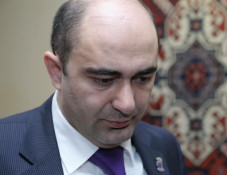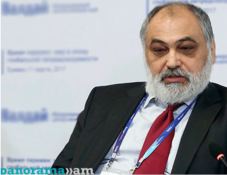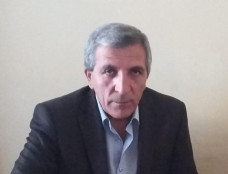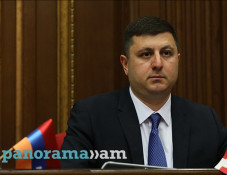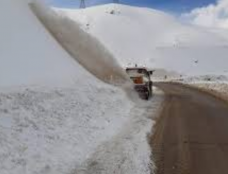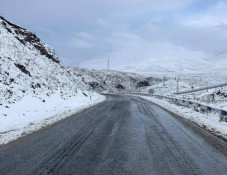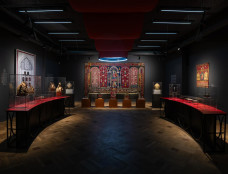
Foreign Policy Journal: Aliyev’s ‘Orwellian’ regime does not spare means on provoking Armenofobia
The Republic of Azerbaijan is one of the most vivid examples of how countries follow the concepts of invented “Oceania” state that is described in George Orwell’s book 1984. The fiction describes a suppressed society under despotic system that rules through state propaganda, falsification of history and reality, as well as keeps its society under permanent state of war and in atmosphere of fear, writes Aram Avetisyan, the NKR office council in US, in Foreign Policy Journal.
The oil-rich Azerbaijan with its quasi-monarch ruler Ilham Aliyev is known as one of the most corrupted states and regimes. Its human rights records are as bad. Consistently assessed by global human rights organizations as a “non-free” state, Azerbaijan is “characterized by intolerance for dissent and disregard for civil liberties and political rights,” the author writes adding that in best traditions of “Oceania”, Azerbaijan’s official rhetoric attempts to misrepresent the reality and claims that all fundamental freedoms are provided in Azerbaijan.
However the article reminds how the same “freedom-provider” has recently cracked down on local and American NGOs forcing them to cease operating in Azerbaijan. It detained and jailed human rights activists and reporters. Here, Aliyev’s regime was especially tough on those involved in peaceful diplomacy efforts on Nagorno Karabakh conflict, and towards the U.S.-funded Radio Free Europe/Radio Liberty (RFE/RL)—the bureau was raided just days after U.S. State Secretary John Kerry personally expressed his concern over continuing persecutions in Azerbaijan. “Freedom is slavery” the author quotes Orwell.
Another slogan of the Orwellian state, “war is peace”, perfectly corresponds with Azerbaijan’s behavior regarding the Karabakh conflict.
“Inspired by the flow of easy oil money, Aliyev’s regime keeps itself and the neighborhood under a permanent threat of war in order to cover his own shortcomings and reinforce his grip on power. Continued bellicose statements and permanent tension along the frontline via subversions and other violations of the 1994 ceasefire agreement, co-signed by Azerbaijan, Nagorno Karabakh and Armenia, are called to facilitate Aliyev’s stance. The same logic applies to Azerbaijan’s rejection to pulling out snipers from the Line of Contact and implementing other de-escalation measures repeatedly proposed by international community,” the author writes.
Aliyev’s regime spares no efforts to instigate anti-Armenian hatred. The country continues its military buildup, re-writes its own and the region’s history, and distorts the essence of the Nagorno Karabakh conflict by misrepresenting the case of self-determination of Nagorno Karabakh as Armenia’s territorial claim against Azerbaijan.
The author claims that state-controlled media help maintain anti-Armenian sentiments in the society at a dangerously high level. Be it burning books of Azerbaijani writer Akram Aylisli, whose Stone Dreams novel dared to be somewhat neutral towards Armenians and recounted Azeri bloody atrocities against local Armenian population, or pardoning and glorifying Safarov, who had axed a sleeping Armenian officer in Hungary in 2004 and was illegally released after extradition, or series of hate-speech tweets and statements by Aliyev calling all Armenians enemies of Azerbaijan, the regime’s behavior demonstrates the highest level of intolerance and hatred within Azerbaijan towards Armenians.
“Orwellian” Azerbaijan has certainly passed beyond the pale of norms and principles of international law and fundamental human rights. Aliyev’s regime must be held responsible for its stance. Otherwise, the world risks seeing further misbehavior and more opportunities for greater regional instability. An appeasement policy that turns a blind eye on aggressive behavior only encourages dictators to think that “ignorance” is really “strength” and might lead to another regional catastrophe,” the author concludes.
Newsfeed
Videos








